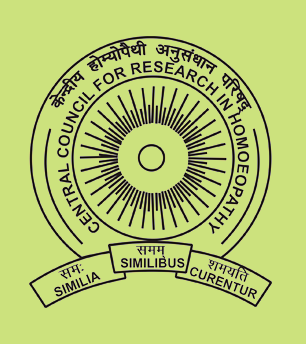Indian Journal of Research in Homoeopathy
Keywords
Biomarkers, Genotoxicity, Homoeopathy, Hepatocarcinogenesis, Mice, Carcinosin-200, Natrum sulphuricum-30
Article Type
Original Article
Abstract
The study was undertaken to examine whether Carcinosin-200 (Car-200) could provide additional ameliorative effect, if used intermittently with Natrum sulphuricum-30 (Nat sulph-30) against hepatocarcinogenesis induced by chronic feeding of p-dimethylaminoazobenzene (p-DAB) and phenobarbital (PB) in mice (Mus musculus). Mice were randomly divided into seven sub-groups: (i) normal untreated; (ii) normal+succussed alcohol; (iii) p-DAB (0.06%) + PB (0.05%); (iv) p-DAB + PB +succussed alcohol (v) p-DAB+PB+Nat sulph-30, (vi) p-DAB+PB+Car-200, and (vii) p-DAB+PB+ Nat sulph-30+Car-200. They were sacrificed at 30, 60, 90 and 120 days for assessment of genotoxicity through cytogenetical end-points like chromosome aberrations, micronuclei, mitotic Index and sperm head anomaly and cytotoxicity through assay of widely accepted biomarkers and pathophysiological parameters. Additionally, electron microscopic studies and gelatin zymography for matrix metalloproteinases (MMPs) were conducted in liver at 90 and 120 days. Results shower that administration of Nat sulph-30 alone and in combination with Car-200 reduced the liver tumors with positive ultra- structural changes and in MMPs expression, genotoxic parameters, lipid peroxidation, y-glutamyl transferase, lactate dehydrogenase, blood glucose, bilirubin, creatinine, urea and increased GSH, glucose-6-phosphate dehydrogenase, superoxide dismutase, catalase, glutathione reductase activities and hemoglobin, cholesterol, and albumin levels. Thus intermittent use of Car-200 along with Nat sulph-30 yielded additional benefit against genotoxicity, cytotoxicity hepatotoxicity and oxidative stress induced by the carcinogens during hepatocarcinogenesis.
Digital Object Identifier
10.53945/2320-7094.2260
Publisher
Central Council for Research in Homoeopathy
Creative Commons License

This work is licensed under a Creative Commons Attribution-NonCommercial-Share Alike 4.0 International License.
How to cite this article
Bhattacharjee N, Banerjee P, Bukhsh AK. Homoeopathic drugs Natrum sulphuricum and Carcinosin prevent azo dye induced hepatocarcinogenesis in mice. Indian J Res Homoeopathy 2009;3:1-15. doi: 10.53945/2320-7094.2260


